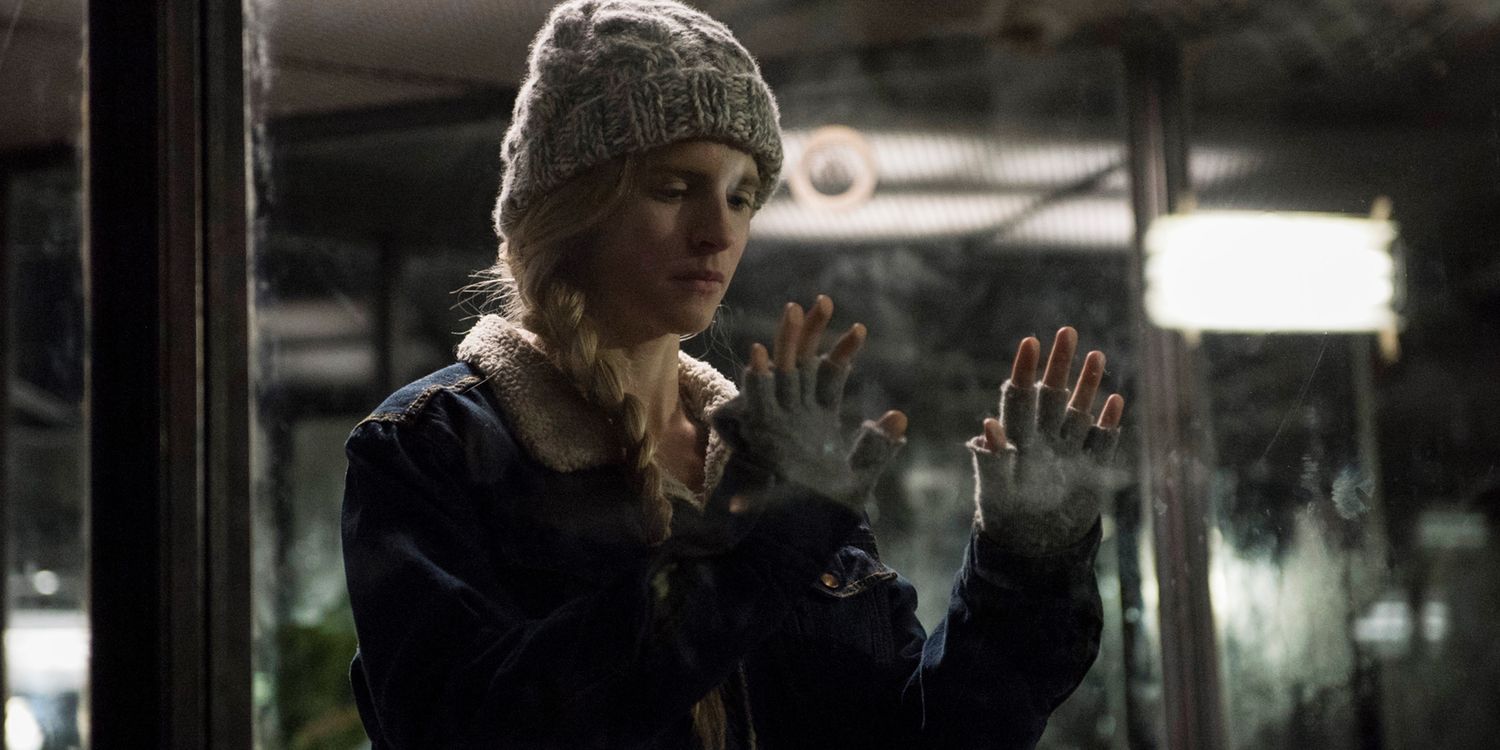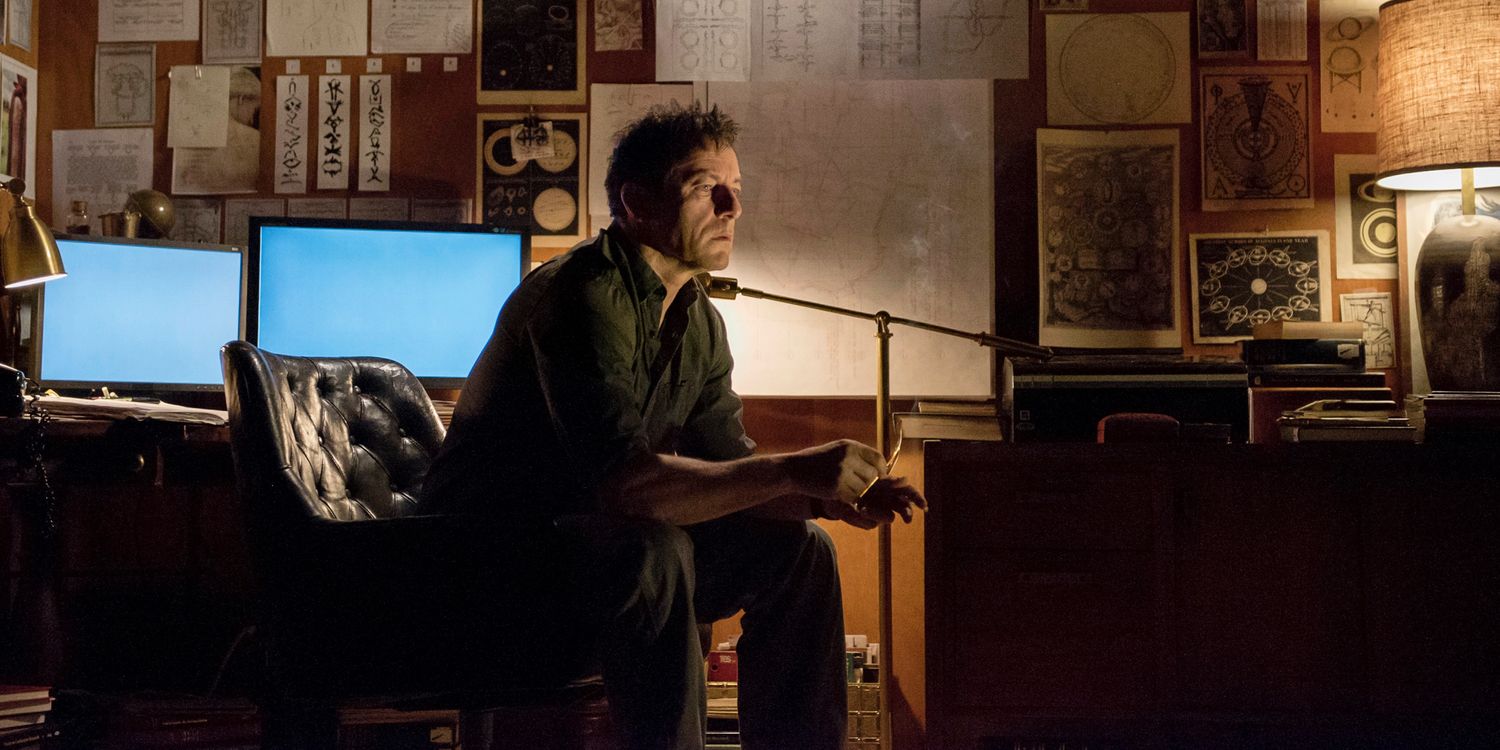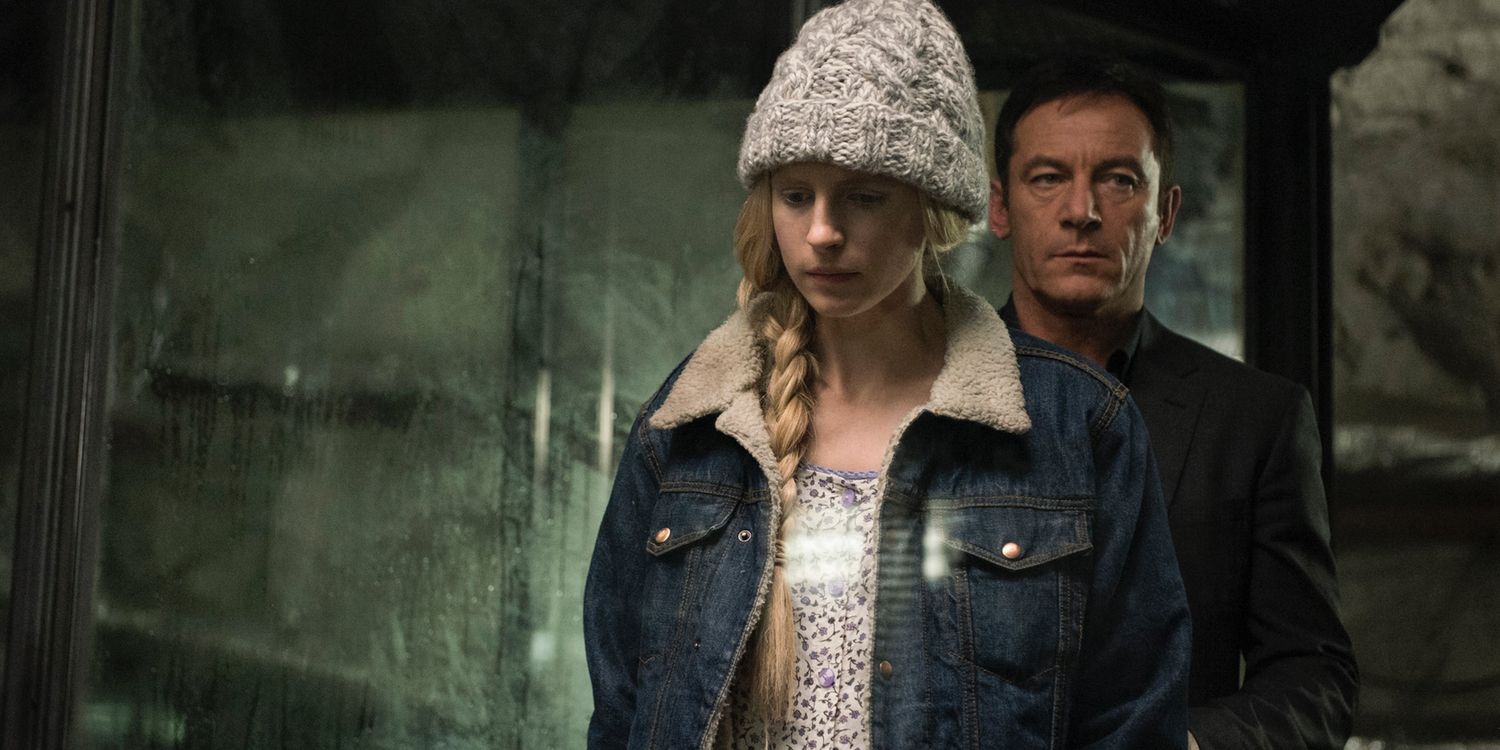It doesn't take much more than passing curiosity to get into The OA. Its mysterious, hasty marketing campaign that revealed almost nothing but its star Brit Marling and some provocative imagery was like a baited hook for viewers in search of the next puzzle box program to sink their collective teeth into. The advertisements all but guaranteed even the most casual of binge-watchers would stop to check it out – if for no other reason than to figure out what the show is all about. And while the folks responsible for pushing the series onto subscribers did a remarkable job at piquing the public's interest – or at least the interest of those whose job it is to write about television – it turns out maintaining that interest is a different ball of wax.
To the credit of co-creators Brit Marling and Zal Batmanglij, even though The OA relies on ambiguity to an outrageous extent, it doesn't try to obfuscate that reliance as much as other mystery-laden shows in recent memory. The OA is upfront about its deliberate use of uncertainty. That means, watching the series, one thing soon becomes clear: it takes more than fleeting inquisitiveness and desire to unpack a potentially unanswerable mystery to stick with this story. It takes even more to make the gigantic leap of faith the series asks of viewers as it nears the finale. That leap being the idea that contemporary dance may be humanity's last hope. That's the sort of plunge many might think twice about making. But by the time you find out what's really going on, it's too late to turn back; you have to finish.
The series' attempt to see its narrative unfold in the juncture of spirituality and the real-world is ambitious and often times beautifully rendered. Those moments when OA (or Prairie or Nina) is in the place that exists beyond life feels like the show is doing some fascinating world-building, revealing a universe that is not the cold, unforgiving place it so often seems to be. But The OA never quite lines that exciting notion up with a plot capable of driving anywhere but an inevitably ambiguous twist during an unearned moment of violence.
Even with the addition of the season's surprising climax, it's hard to escape the notion that Marling and Batmanglij spent seven episodes dancing around the edges of a much more convincing storyline, inviting ambiguity at every turn as a way to avoid concretizing the concept they've dreamed up and asking those watching to buy into something other than the question: Was it all made up? In their defense, that kind of storytelling does require a level of commitment from those doing the telling. It's not easy keeping the audience's interest in a story when you're constantly reminding them it may all be a fiction within a fiction, a tale made up by a woman coping with a lonely, grief-filled life who went missing for seven years at one point. But at the same time, inserting ambiguity into nearly every major plot point is a little like saying, "Eh, I'm still working on it. Maybe it'll go this way, maybe it won't."
The OA's decision not to relinquish its grip on uncertainty is its most compelling attribute (oh look, another TV series with a Reddit-ready mystery at its core!) that also turns into its biggest weakness. For one thing, the series' basic set up is so reminiscent of Marling and Batmanglij's feature film Sound of My Voice that anyone who's seen it will see the twist coming well in advance. And it's not even the twist – the maybe she was telling the truth bombshell – that is too reminiscent of the duo's past work, but rather the manner in which the central character communicates her story to a captive audience, one within the story itself and to the actual audience watching.
Whereas Sound of My Voice was constrained by both its runtime and budget, The OA has relatively vast quantities of both. This allows Marling and Batmanglij to take the sit-down story sessions the film also utilized to tease the inscrutability of the lead character's tale and turn them into exhaustive flashbacks. Those flashbacks are made complete by Jason Isaac's unsurprisingly solid and committed performance as Hap, a scientist so driven to prove the existence of life after death that he imprisons and repeatedly kills (and brings back) survivors of near death experiences. But because The OA is so intent on pulling the rug out from under the viewer, making them question whether or not Prairie's story about the last seven years, her childhood in Russia, and, you know, being the Original Angel, is real or not, it ends up inadvertently undermining the efforts of everyone in those flashbacks.
And that says nothing of Hap's own flashback, in which he kills his mentor in a hospital morgue, requiring the viewer to accept a dramatic shift in the narrative point of view because there is no way Prairie could have this information, unless she is, in fact, making it all up. The same goes for Riz Ahmed's role as Elias Rahim, an understanding counselor who is seemingly in place to help bridge the gap between the unknowable truths and fictions of Prairie's (or The OA's) story. But Elias, like Homer, Scott, Rachel, Renata and the teens learning to dance to unlock the secrets of humanity is ultimately just another satellite orbiting the celestial body that is Marling. And yet, because The OA is such an unreliable narrator, she remains distant and inscrutable – sort of like the series itself.
All this eventually brings you to the realization that the series' narrative moorings are built on sand. The OA needs something to anchor itself come time for the season's climax, and the finale searches for this in the emotionally manipulative imagery of a school shooting – the second time the series uses the lives of children to underline the importance of Marling's character. The result is the series winds up in an awkward place where the lines of spirituality and reality (or perhaps just the truth of The OA's story) are intended to meet and yet they still manage to somehow miss each other.
In spite of its shortcomings The OA is still difficult to turn away from. It's ambitious and flawed in the same way as, say, Netflix's Sense8, Richard Kelly's Southland Tales, or even Marling and Batmanglij's Sound of My Voice. In the end, that willingness to swing for the fences matters more to the series than whether or not it actually connects, much less results in a home run. Whether the same hold true for those watching will be a different matter altogether, though.
-
The OA season on is available in its entirety on Netflix.
Photos: Netflix



